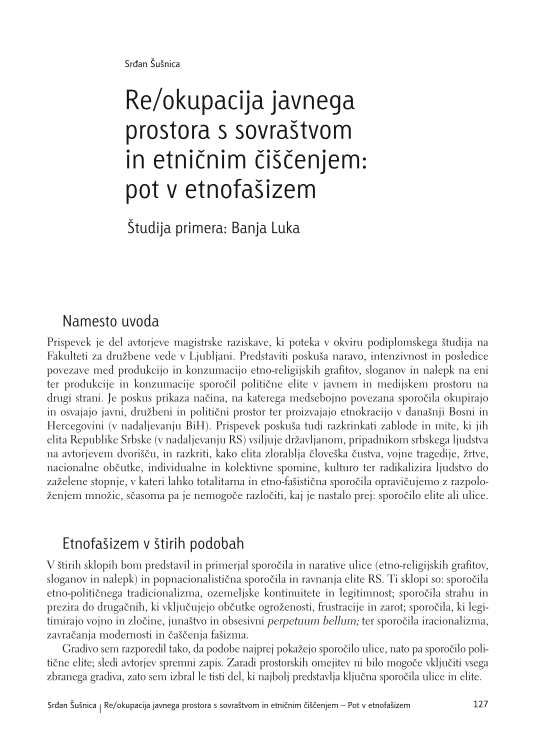The article analyses the symbolism and the meaning of ethno-religious graffiti, slogans and stickers especially as they are used on the streets of Banja Luka. The city used to be a strategic centre for armed forces but is today the political centre of Republika Srpska (RS), supposedly a legitimate military conquest of the people of Serbia. Responses in ethno-religious graffiti can be turbulent. In our case, narrative and visual codes transmit dominant messages and myths of the Serbian ethnical corpus which can easily become hate speech, especially in the post-war context, in which ethno-religious differences are being brought to the fore, war crimes and armed victories are being exalted and expressions of non-tolerance are common. This aggressive visibility of »ours« pushes all the rest and anyone who is different into invisibility and self-censoring. The article researches characteristics and the quality of connection between the production and the results of ethno-fascistic speech in graffiti and in the messages of the RS ethno-political elites in public forums, regulations and media spaces. A contextual interpretation of a graffiti discourse, which was formed in the midst of civil war, ethnic cleansing, attacks on and the separation of Bosnia and Herzegovina and activities of political elites in RS, is offered. The intimate connection between street discourse and that of political elites shows that a populist legitimization of the activities of the RS is still a political goal that also triggers the process of forgetting the region’s multi-ethnic past. In Banja Luka, this process offers a »national and spiritual« legitimacy for the existence of RS and seeks to make the city a part of the Serbian ethnic community. It offers an unconvincing cultural-political and war-emancipatory »continuity« and »normality« for the RS and covers up its real intention of bloodshed from which it had emerged. In this it is consistent with Eco’s notion of Ur-Fascism.




